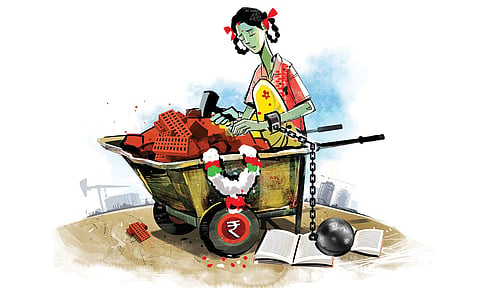

CHENNAI: The members of the Campaign Against Child Labour (CACL) in Tamil Nadu and Puducherry held a consultation meeting to gauge emerging issues and formulate strategies to eradicate child labour.
The two-day consultation meeting was held, aiming to assess progress made in eradicating child labour, identifying the emerging challenges in the field and outlining a clear roadmap to accelerate action for eradicating child labour by 2025 as mandated by the Sustainable Development Goal (SDG) target 8.7.
The SDG target urges all nations to end child labour in all its forms, including its intersections with forced labour, modern slavery, and human trafficking.
During the consultation, discussions were also held on the rise in child labour cases post-COVID-19 pandemic everywhere, including Tamil Nadu, despite the state's active measures to reduce and report the same.
CACL press note stated that national-level studies, including a UNICEF report from 2023, suggested that child labour has increased by 8 per cent in urban areas and 11 per cent in rural areas post-pandemic, driven by school dropouts, economic distress, and migration.
"A survey conducted by CACL in TN in 2021 also revealed a disturbing trend: more children are now engaged in informal labour sectors, particularly in garment units, agriculture, and domestic work," the note added.
Hence, the consultation with child rights organisations, government officials, law enforcement bodies, educationists, and activists had come together to develop innovative strategies to revitalise the "Education for all" agenda by ensuring the Right to Freedom.
Additionally, some of the other goals were quality and compulsory education for every child up to 18 years, explore emerging patterns of exploitation, especially in the informal and digital economies, identify policy and programmatic gaps exacerbated by the pandemic and recommended measures to ensure robust implementation of labour laws, the Right to Education (RTE) Act, and the Juvenile Justice (JJ) provisions.